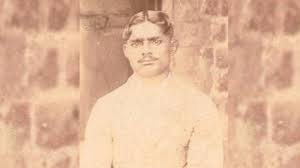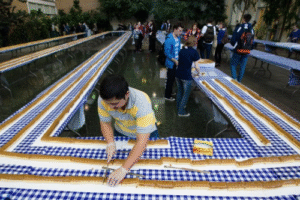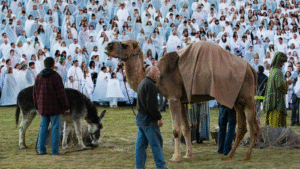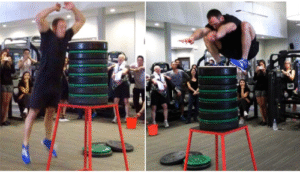Phadeppa Dareppa Chaugule was a pioneering Indian athlete who represented India in the 1920 Antwerp Olympic Games. He participated in the marathon event, which was one of the most grueling and prestigious events at the Olympic Games. His participation in the 1920 Olympics marked a significant moment in the history of Indian athletics.
Event: Phadeppa Chaugule competed in the marathon at the 1920 Antwerp Olympic Games in Belgium.
Date: The 1920 Summer Olympics were held from April 23 to September 12, and the marathon event took place as part of the athletics competition.
Final Position: Phadeppa Dareppa Chaugule finished 19th in the marathon event.
Time: His time was 2 hours, 50 minutes, and 45.2 seconds. While this time did not secure a medal, it was a commendable performance, particularly considering the challenging conditions and the relatively underdeveloped state of athletics training in India at the time.
Historical Context: The 1920 Olympics were one of the first Olympic Games in the post-World War I era, and it marked the beginning of India’s involvement in the Olympics as an independent nation.
Indian Representation: Chaugule’s participation was part of the early wave of Indian athletes competing at the Olympics, and it demonstrated India’s emerging presence in global sports, especially in the athletics domain.
Impact: While Phadeppa Chaugule did not win a medal, his participation in the 1920 Olympics represented a step forward for India on the global sports stage. It also set the foundation for future generations of Indian athletes to compete at the Olympic level.
Trailblazer: Chaugule was one of the early Indian athletes who took part in the Olympics, and his participation paved the way for future Indian athletes in athletics, particularly in long-distance running.
Inspiration: His entry into the Olympics, despite the limited resources available at the time, served as an inspiration for many aspiring Indian athletes who later followed in his footsteps to compete in the Olympics and other international events.
At the time of the 1920 Olympics, India was still under British colonial rule, and sports infrastructure in India was not as developed as in other countries. However, Indian athletes like Phadeppa Dareppa Chaugule, alongside others, began to demonstrate that they could compete at the highest levels, challenging global athletic standards.
The marathon event in 1920 was a challenging race, with athletes facing difficult weather conditions and demanding courses. It was also one of the most important events in the track and field competition during the Olympics.
The Winner of the 1920 marathon was Kenyan runner Rudolf Harbig, who set a new Olympic record. While Chaugule did not win a medal, his effort was part of a growing tradition of marathon running in India.
After the 1920 Olympics, there isn’t much documented about Chaugule’s subsequent athletic career. However, his participation in the Olympics remains a proud moment in Indian sports history, especially in the context of early Indian representation in international events.
Phadeppa Dareppa Chaugule’s Olympic journey is part of the rich history of India’s early participation in the Olympic Games. While he did not win medals, his involvement in the 1920 Antwerp Olympics set the stage for future Indian athletes to represent the country at the global level, particularly in long-distance events like the marathon.
Phadeppa Dareppa Chaugule’s participation in the 1920 Antwerp Olympic Games holds a significant place in the history of Indian athletics. Despite finishing 19th in the marathon with a time of 2 hours 50 minutes 45.2 seconds, his involvement in the Olympics was an early milestone for Indian athletes on the world stage. His journey was part of the foundation of Indian sports’ long-term success in international competitions, inspiring future generations to follow his path.







